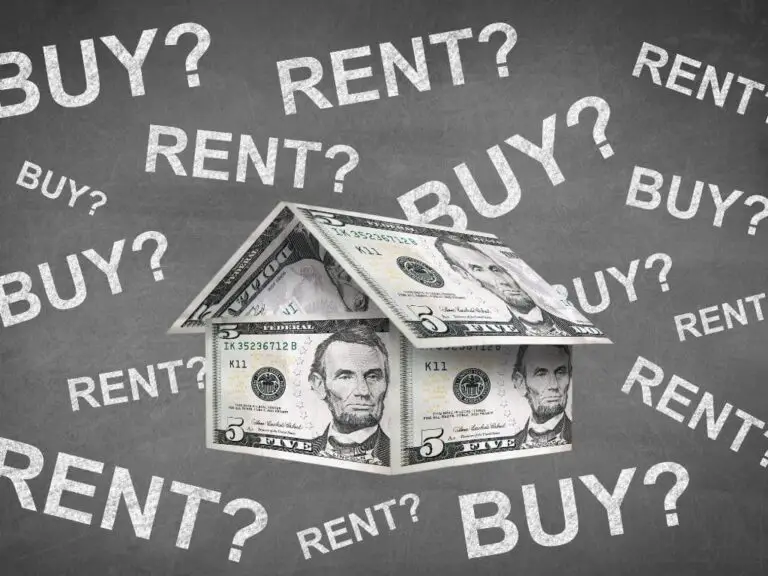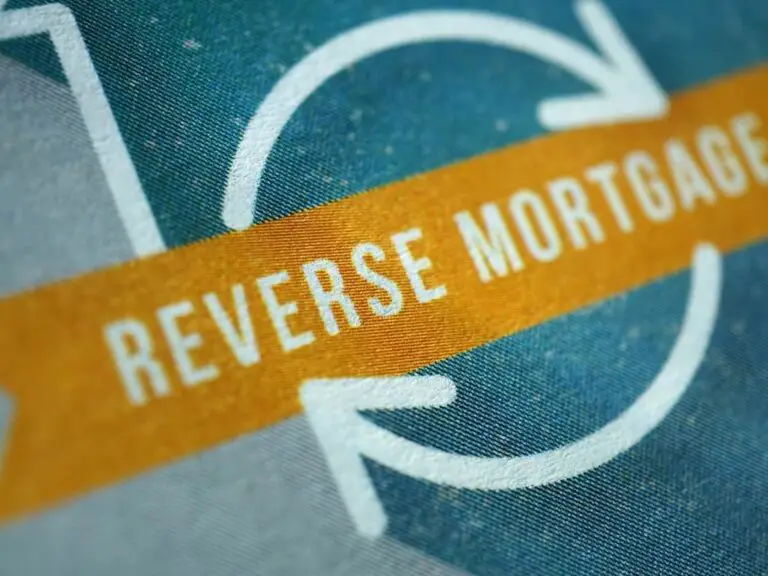How Much Does Independent Living Cost In NJ?
Independent living communities provide seniors with a variety of services and amenities. Depending on where you live in New Jersey, the cost of independent living can be very high. But how much does independent living cost in NJ?
The cost of independent living in NJ is between $2,500 and $6,000 per month, depending on the level of care. The average cost is around $4,222 per month.
Independent living costs in New Jersey are more expensive than most states, especially compared to neighboring states.

To know more about independent living costs in NJ, continue reading the article.
Average Cost of Independent Living in Major Cities in New Jersey
Whether you are an individual looking for an affordable place to live, a senior citizen who is considering downsizing, or a business owner in search of the ideal location for your business, you will need to understand the cost of living in New Jersey. The information presented here can help you determine which cities are the most affordable.
Jersey City
Despite its high cost of living, New Jersey is still an attractive retirement destination. It’s a great place to enjoy the great outdoors, excellent schools, and a variety of attractions. The state also offers a wide range of housing options for a lower cost. New Jersey has several large cities. One of the largest is Jersey City, which is situated close to New York City. The city has a population of about 262,000 people. It is home to a number of world-class attractions, including the Statue of Liberty and the Liberty Island National Park. The city is also known for its excellent medical facilities. The average cost of independent living in Jersey City is $6,346 per month.
Paterson
Paterson is one of the largest cities in New Jersey. It is also the county seat of Passaic County. Paterson has a population of around 159,000. The area of Paterson is roughly 30 miles x 20 miles, spanning hills and lakes. It is also home to several top hospitals. The average cost of independent living in Paterson is $5,213 per month.
Trenton
Assisted living in Trenton can be very expensive. If you need help with ADLs, there are plenty of communities in the state to choose from. Some offer discounts on long-term leases and upfront payments. Independent living communities offer many amenities. These include daily meals, housekeeping, transportation, social activities, and a sense of community. The average cost of independent living in Trenton is $5,294 per month.
Ocean City
Choosing an independent living community in New Jersey can be difficult. However, the state has many options that make life easier. In Ocean City, you can find senior living communities that include social activities and transportation, as well as laundry and housekeeping services. These are great options for older adults who do not need to be assisted with daily tasks but want to live independently. The average cost of independent living in Ocean City is $4,869 per month.
Elizabeth
Located along the Atlantic Coast, New Jersey has a number of great attractions. It’s also a fun state to live in. The state ranks fourth happiest in the nation. Elizabeth is one of the major cities in New Jersey.
It has many great senior housing options. Seniors can choose from independent living communities, which allow them to live on their own while getting assistance with some of their daily activities. The average cost of independent living in Elizabeth is $5,213 per month.
The Hidden Costs of Independent Living In NJ
Regardless of where you live, there are certain hidden costs of independent living that you may not be aware of. Some of these costs are transportation costs, monthly fees, utility bills, and maintenance and repair costs.
Maintenance and Repair Costs
Depending on where you live, maintenance and repair costs vary greatly. In New Jersey, for example, the cost of maintaining the sewer system is a mere 11% more than the national average. This makes the Garden State an appealing place to downsize. The best way to get your foot in the door is to shop around.
Utility Bills
Whether you live in an independent living community or a condo or apartment, utility bills are a large part of your monthly budget. Utility bills show you how much electricity, gas, water, and other services you have used during the month. They also list your due date and provide guidance on how to pay. The state of New Jersey offers two programs that help low-income customers pay their gas and electric bills.
Transportation Costs
The cost of living in New Jersey is high, but it is still affordable to those who can manage their finances. One of the major costs of living in the city is transportation. In general, the cost of transportation in New Jersey is higher than the national average. However, there are a variety of transportation options available to seniors. Some communities offer a free or discounted transportation service.
Monthly Fees
Assisted living and independent living in NJ can be expensive. Depending on what kind of care is needed, costs can range from a few hundred dollars to a couple of thousand dollars. The monthly fees often include a variety of amenities, such as a daily meal, transportation, and wellness programs. Medicaid may help cover some of the costs.
How to Pay for Independent Living in New Jersey?
Whether you are still working or not, there are a lot of options for you to consider when it comes to how you will pay for independent living in New Jersey.
Social Security And Pension Payments
Whether you’re a state, county, or municipal employee, you are eligible to join one of New Jersey’s pension plans. There are seven pension funds available to government employees. They offer benefits based on your years of service and salary. There are also pension plans offered by private corporations.
Cashing Out Savings
Putting money in a savings account for retirement is a good way to prepare for your golden years. It’s also a good idea to consider all of your options before making a final decision. If you’re not sure which plan to choose, you might be able to cash out your savings account to pay for your retirement.
Low-Interest Loans
Obtaining low-interest loans or other forms of credit to pay for independent living in New Jersey is a smart move for many seniors. A good financial planner can help you decide whether a bridge loan is a prudent move or not. You’ll also want to shop around for the best deal before you sign on the dotted line.
Retirement Pensions
Compared to most other states, New Jersey’s public pension system is expensive. This is large because it promises generous benefits without actually paying for them. You can use retirement pensions to pay for independent living.
Equity Loans or HELOC
Depending on the purpose of the funds, a home equity loan or HELOC can be a good choice. It can provide a safety net for homeowners and allow them to take out money for home improvement projects or to consolidate high-interest credit card debt.
Bridge Loans
Using bridge loans to pay for independent living in New Jersey can be a great way to avoid having to sell your current home. However, they aren’t always a wise financial move. You should always seek advice before taking out a bridge loan.
Housing Assistance
Housing assistance for independent living in New Jersey is provided by government agencies and nonprofit organizations. Some of these services are free. Some residents have to pay a monthly fee. Some facilities include meals and entertainment in the monthly rent.
Supplemental Security Income
SSI for independent living in New Jersey is a program designed to help low-income individuals. It provides monthly cash benefits to people with disabilities. While this payment is based on income and resources, the amount that a person can receive is dependent on the state and their situation.
Conclusion
The average cost of independent living in New Jersey is more expensive than in most states in the USA. It can cost anywhere between $2,500 and $6,000 per month. However, you can save a lot of money by taking financial aid and looking for cheap cities to live in.
Frequently Asked Questions
-
How much does independent living cost in NJ?
The average monthly cost for independent living in New Jersey amounts to $3,300. The monthly rate can cover utility bills, concierge and transportation services, housekeeping and daily meals. There are also access to many wellness and entertainment opportunities.
-
What is the monthly income limit for Medicaid in NJ?
Individuals with a gross monthly income less than or equal to 100% of Federal Poverty Level are eligible for the New Jersey Care Special Medicaid Programs. This is for those who have a total of $1,133, $1,526, and $4,000 respectively. A couple can receive $1,526 and $6,000 per month.
-
How much is senior housing in NJ?
Genworth’s Cost of Care Survey 2020 ranks New Jersey as the most expensive state in terms of cost of assisted living. The national average monthly cost is $4,300 per month. However, NJ residents spend approximately $2,350 more per month and the average cost of assisted living in NJ is $6,650.
-
How do you qualify for low income housing in NJ?
For NJ Fair Share Housing you must have a minimum income of 80% for moderate income, 50% for low income, and 30% for extremely low income. To meet the housing cost of most NJ Fair Share Housing Projects, you must have a minimum income of 35% below median.
-
What is considered low income in NJ 2021?
A New Jersey four-person family could earn as high as $45,600 per year, and be considered “very poor” (earning below 50 percent of median income), and as low as $27,350 annually to be considered “extremely poor” (earning under 30 percent of median income, or federal poverty limit).
-
Does Medicare pay for assisted living in New Jersey?
Short answer: Medicare doesn’t cover assisted living costs in New Jersey.
-
How old do you have to be to live in senior housing in NJ?
Most communities have an average age of 55 or more. The New Jersey Department of Community Affairs registers these facilities.
-
How much cash assistance will I get in NJ?
WFNJ services are only available for five years. GA beneficiaries receive the following cash benefits: $185 per month for an employed single adult; $277 per month for disabled adults; $254 for couples where either one or both of their members are eligible for employment and $382 for a married couple with both disabled members.
-
How do I apply for low income housing near me?
Contact your local public housing agency to apply for Housing Choice vouchers. Contact your local HUD office if you require additional assistance. A written application will be required or a representative from your PHA can assist you.
-
What is considered low income in NJ 2020?
A New Jersey four-person family could earn as high as $45,600 per year, and be considered “very poor” (less than 50% of the median household income). The annual income of $27,350 to be considered “extremely poor” is less than 30 percent or the federal poverty level.
-
Who qualifies for HUD housing in NJ?
Income eligibility guidelines HUD set the income limit at 80%, and the very low income limit at 50% for those who live in the same county. You may not be eligible for one housing authority, but you might qualify at another.
-
How much does a home health aide cost in NJ?
The average hourly charge for home care is $30 per hour, for certified aides and companions. The cost of live-in care is $295 per day. The level of care required can affect the rates.
-
Does Medicaid in NJ pay for assisted living?
The answer to your question is no, I won’t keep you waiting. New Jersey Medicaid covers assisted living. New Jersey Medicaid covers assisted living.
-
Can someone under 55 live in a 55+ community in NJ?
Are you 55 years old or older to join your active adult community in New Jersey? We are an aged restricted community. You must be 55 years old or older to be an occupant.
-
What is the maximum income for low-income housing in NJ?
According to the Department of Housing and Urban Development, a New Jersey family of four must earn at least $71,900 per year to qualify as low-income. This is almost six percentage more than last year.






